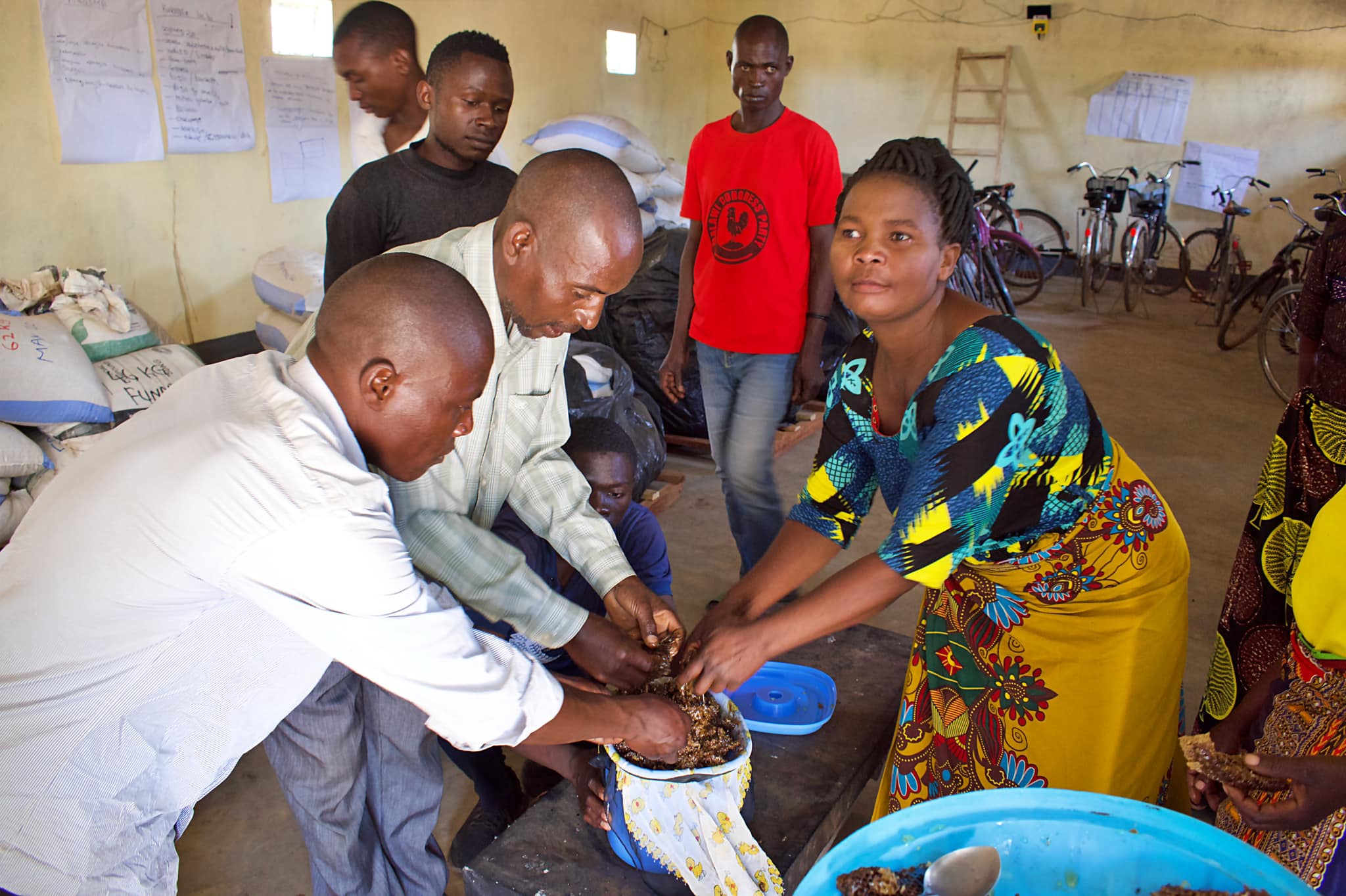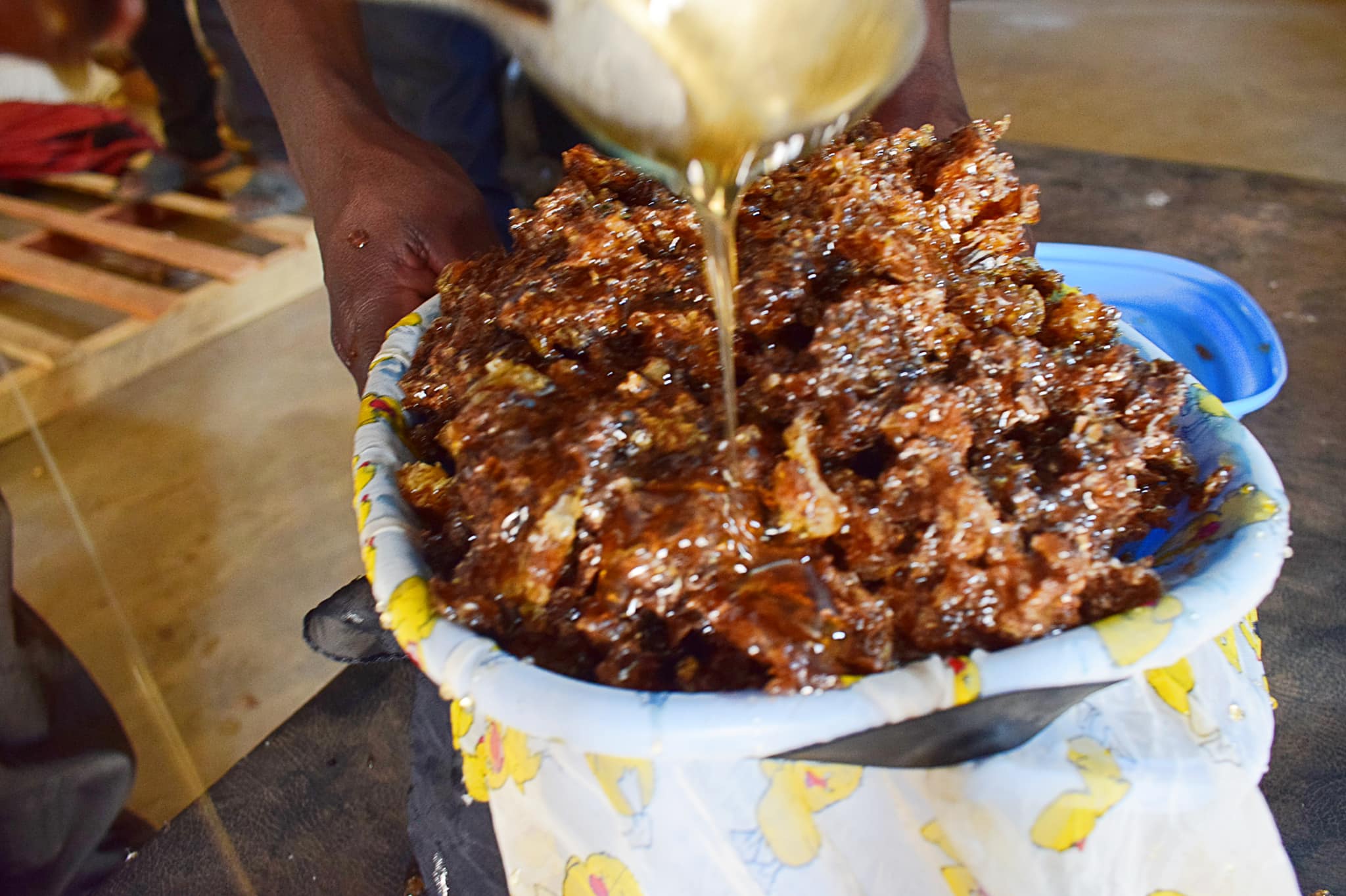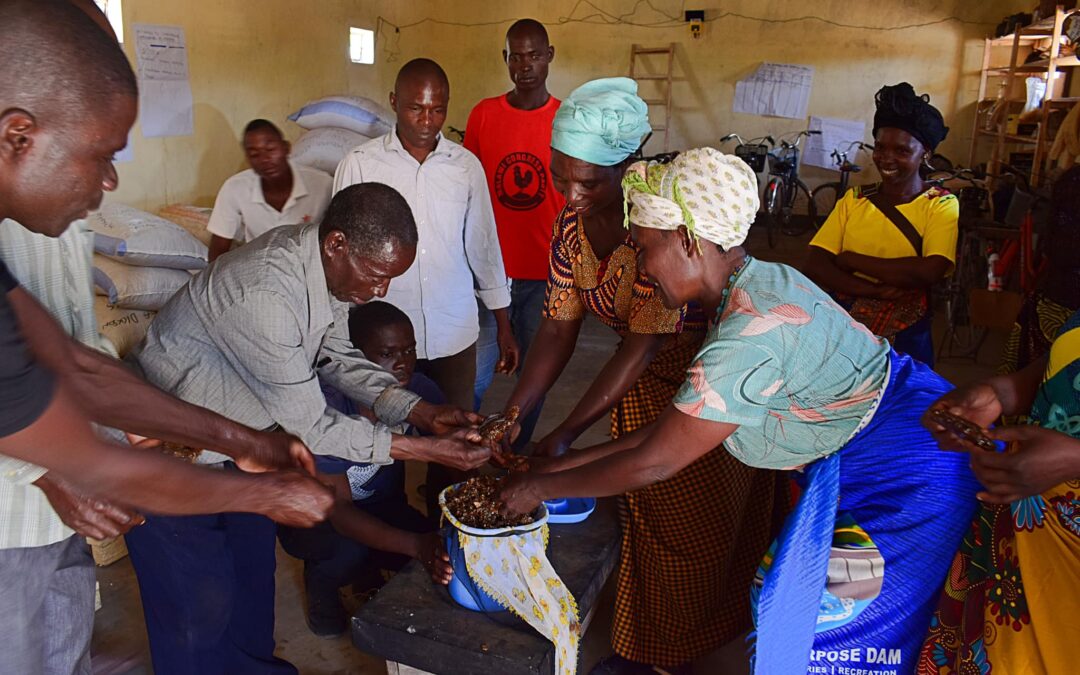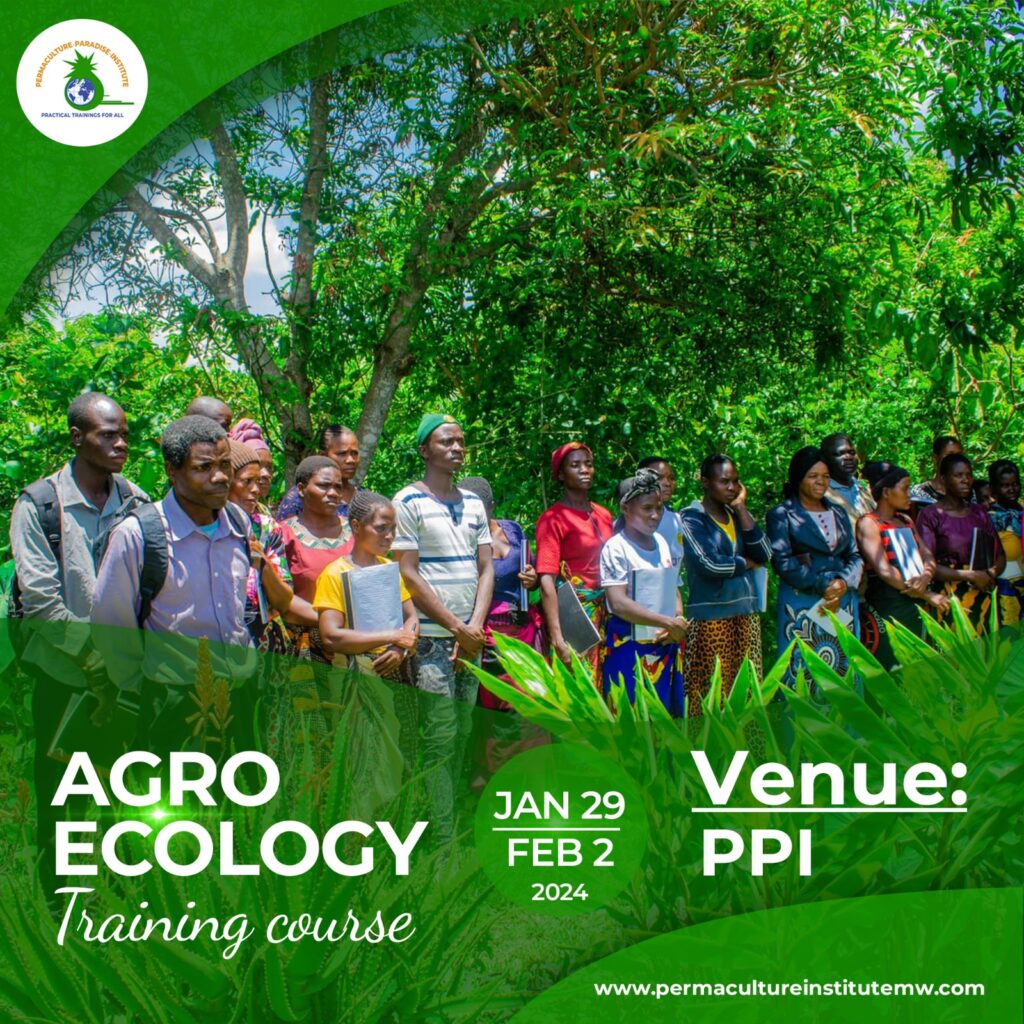Day four of our beekeeping training in Madisi Dowa brought the focus back to the roots, as farmers dove into the art of traditional honey processing. Using locally available materials, the farmers learned how to transform the honey they harvested the previous day into a finished product ready for consumption or sale. This session was all about embracing the resources at hand and turning them into valuable, high-quality honey.
The morning started with a demonstration of traditional honey processing methods that have been passed down through generations. Our trainers showed the farmers how to use simple tools and techniques to extract honey from the combs, strain it, and prepare it for storage. The emphasis was on practicality and sustainability, ensuring that the farmers could replicate the process using materials readily available in their communities.
As the farmers began processing the honey they had harvested, the atmosphere was a mix of concentration and excitement. They carefully followed each step, from cutting the honeycomb to extracting the honey, ensuring that nothing went to waste. The hands-on experience allowed them to fully understand the nuances of traditional honey processing, appreciating the value of each drop of honey they collected.
The session also highlighted the importance of hygiene and quality control in honey processing. The farmers learned how to keep their workspaces clean and how to store honey properly to maintain its quality. These practices are essential for producing honey that is not only delicious but also safe and marketable.
As the day progressed, the farmers were encouraged to share their experiences and any challenges they encountered during the process. This collaborative approach fostered a sense of community and mutual support, as they exchanged tips and advice on how to improve their techniques. The knowledge shared during this session will help them refine their skills and produce even better honey in the future.

By the end of the day, the farmers had successfully processed the honey they had harvested, taking another significant step toward becoming practical, self-sufficient beekeepers. They now have a deeper understanding of how to manage the entire beekeeping process—from hive management to honey harvesting and processing—using both modern and traditional methods.

The journey to becoming a proficient beekeeper is one that requires patience, dedication, and continuous learning. With each passing day of this training, the farmers are gaining the confidence and skills they need to succeed. They are not just learning to produce honey; they are also gaining valuable insights into how to sustain their food forests and create a lasting impact on their communities.
As we approach the final day of training, the excitement among the farmers is palpable. They are eager to apply what they’ve learned and to see the fruits of their labor come to life. Stay tuned for the final updates as we wrap up this intensive and transformative beekeeping training in Madisi Dowa, where traditional knowledge meets modern practice in the pursuit of sustainable agriculture.



